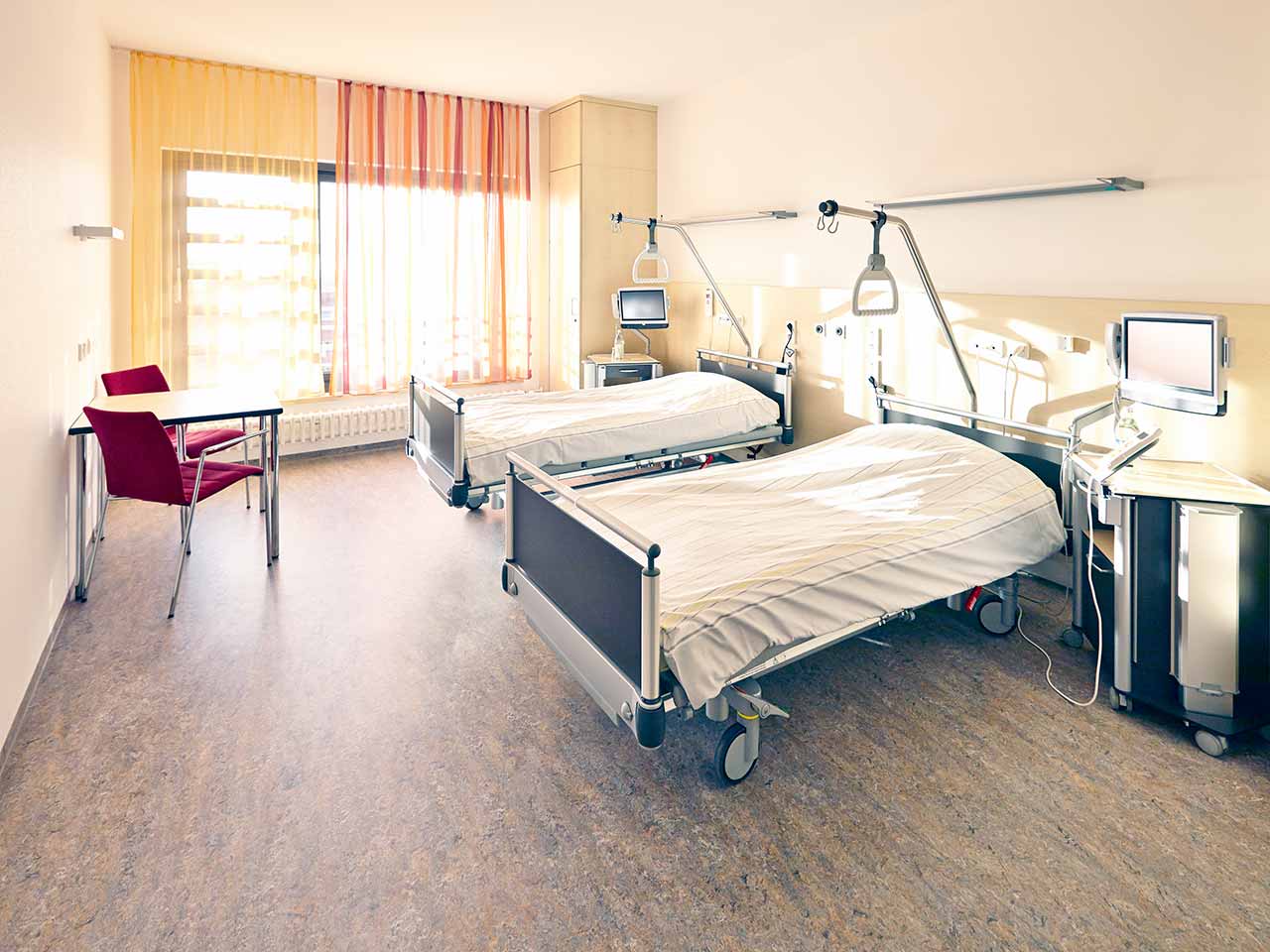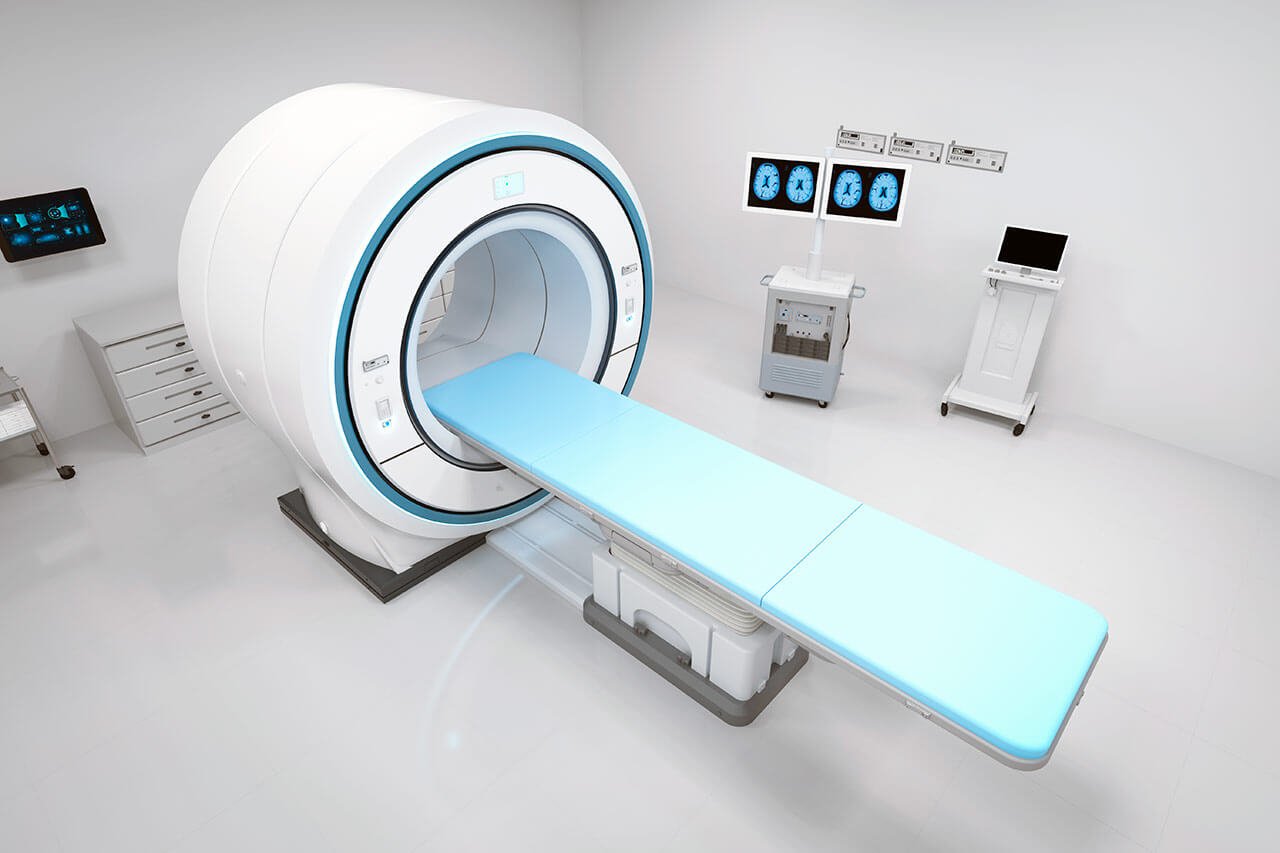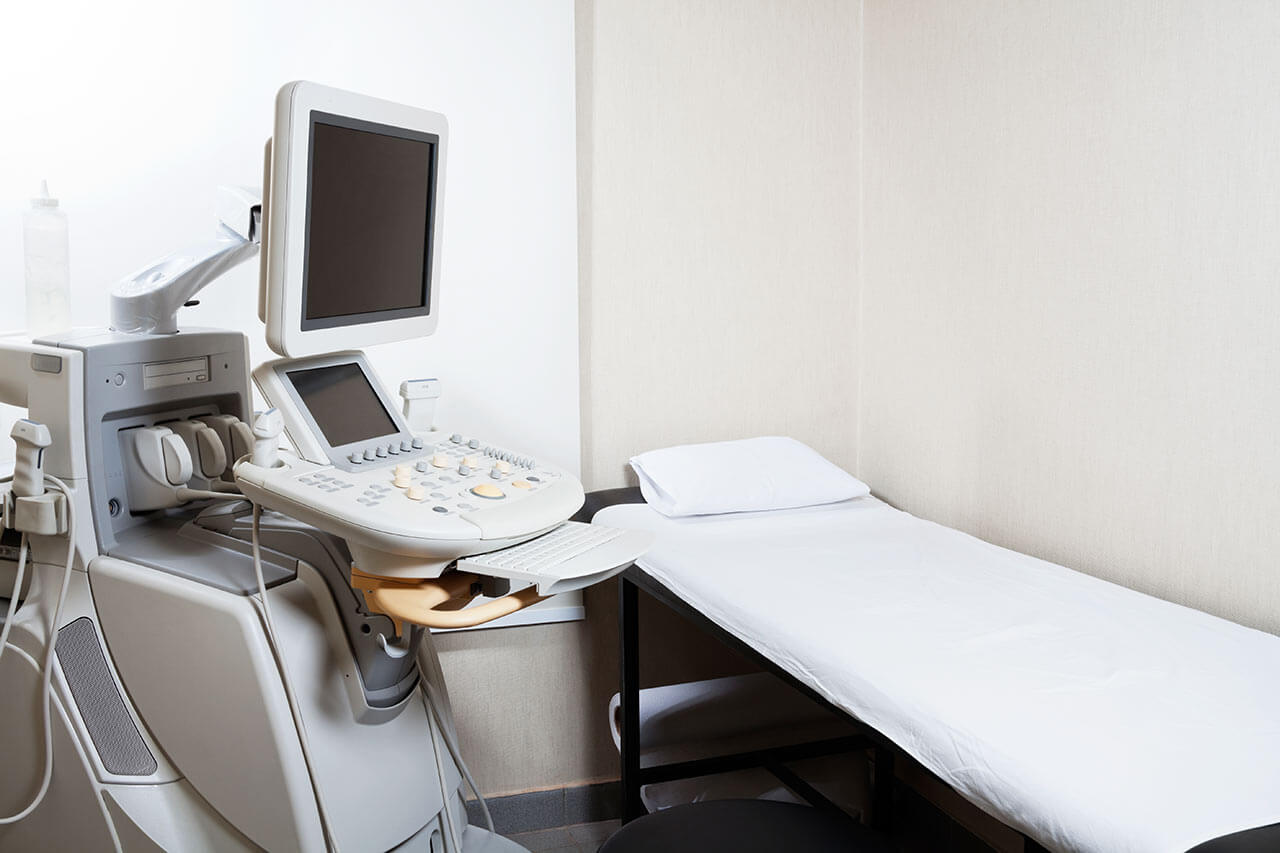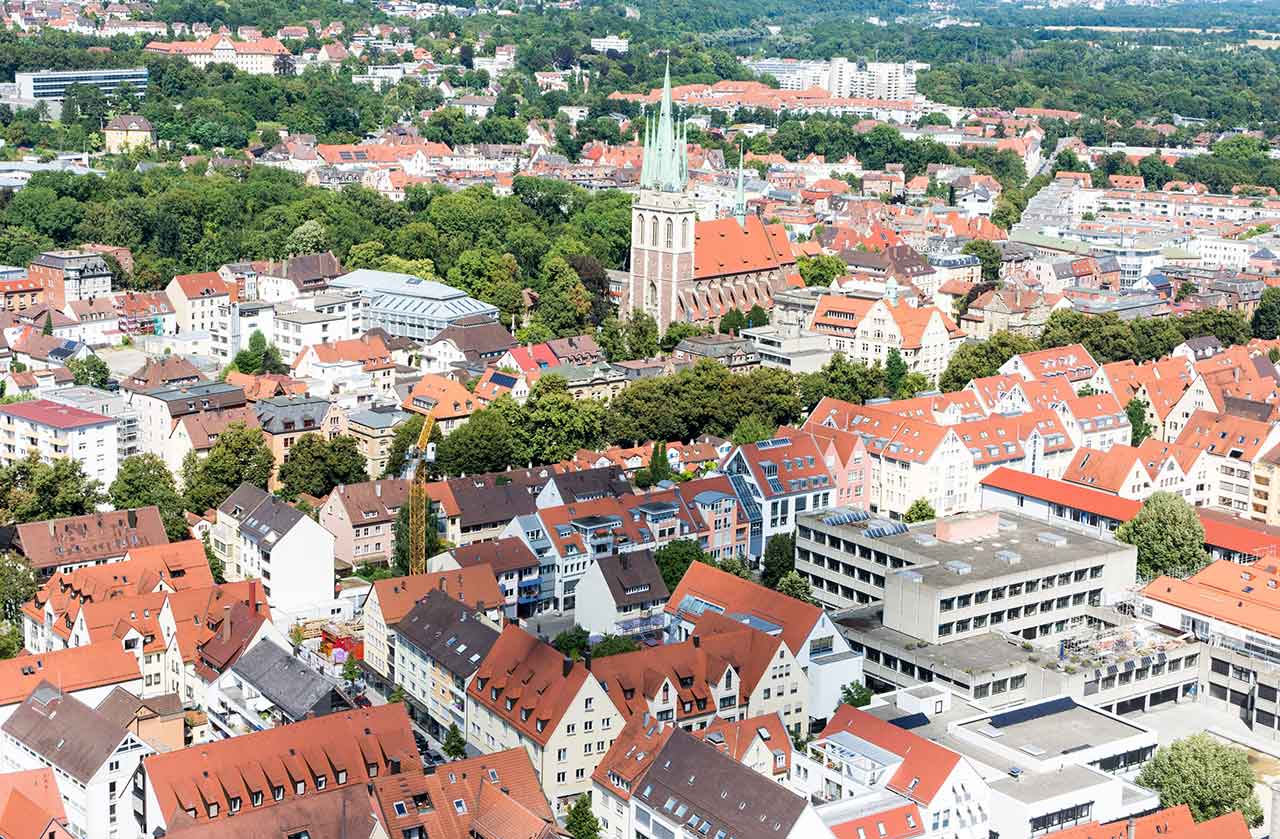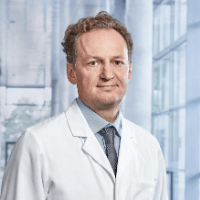
The program includes:
- Initial presentation in the clinic
- clinical history taking
- review of medical records
- physical examination
- laboratory tests:
- complete blood count
- general urine analysis
- daily urine analysis
- biochemical blood test
- inflammation markers (CRP, ESR)
- blood coagulation analysis (aPTT, PT, INR)
- immune tests
- ultrasound examination
- kidney vessels MR angiography (if indicated 1200 €)
- еxcretory scintigraphy (if indicated 600 €)
- nursing services
- consultation of related specialists
- treatment by head doctor and all leading experts
- explanation of individual treatment plan
Required documents
- Medical records
- Creatinine and urea blood levels, eGFR assessment (if available)
Service
You may also book:
 BookingHealth Price from:
BookingHealth Price from:
About the department
The Department of Nephrology at the University Hospital Ulm offers the full range of medical services for the prevention, diagnostics, and treatment of kidney diseases. The doctors of the medical facility focus on patients with acute and chronic kidney diseases, kidney lesions due to systemic rheumatic diseases, inflammatory kidney diseases, and arterial hypertension. The department houses an advanced Dialysis Center, which provides various types of renal replacement therapy, such as hemodialysis, peritoneal dialysis, continuous venovenous hemofiltration, continuous venovenous hemodialysis, continuous hemodiafiltration, intermittent peritoneal dialysis, lipid apheresis, and immunoadsorption. The center also offers sustained low-efficiency daily dialysis (SLEDD), which is performed using the GENIUS system. For the patient's maximum comfort, the department houses a Nephrology Laboratory where all necessary tests are performed for suspected kidney pathology. The therapeutic procedures are carried out in accordance with the current clinical protocols and recommendations of the German Society of Nephrology (DGfN). The department's doctors treat each patient and their clinical situation with understanding and are always open to personal dialogue. The department is headed by Prof. Dr. med. Bernd Schröppel.
The key focus in the department's clinical practice is on the provision of renal replacement therapy (dialysis). This treatment is indicated for patients with acute and chronic kidney failure. In cases of kidney failure, the kidneys cannot perform their usual functions, that is, removing metabolic waste products from the blood, maintaining a normal balance of water and electrolytes, and synthesizing the necessary substances to control blood pressure and the synthesis of red blood cells. Dialysis replaces the function of an organ. Before starting renal replacement therapy, a dialysis catheter is placed on the patient. It is placed into a large vein in the neck, thorax, groin, or abdomen. The catheter placement procedure is performed in collaboration with vascular and general surgeons.
The department's doctors successfully perform hemodialysis and peritoneal dialysis. During hemodialysis, the patient is connected to an "artificial kidney" device, during which the blood is purified from waste products. This type of dialysis is performed most often. Peritoneal dialysis differs from hemodialysis in that the patient's peritoneum serves as the dialyzer (filter). A special solution, called dialysate, is injected through a catheter. While it is inside, waste products from the blood are absorbed into it. After some time, the dialysate is drained and a new one is administered. The optimal type of renal replacement therapy is prescribed on an individual basis, depending on the particular clinical indications. Hemodialysis and peritoneal dialysis are most often carried out on an inpatient basis. In some cases, patients receive treatment in a day-patient facility.
The medical facility also offers modern blood purification procedures such as lipid apheresis and immunoadsorption. Lipid apheresis is recommended for patients with nephrotic syndrome. During the procedure, cholesterol-containing particles are selectively removed from the blood plasma using specialized equipment outside the patient's body. After the procedure, purified blood is returned to the body. Immunoadsorption is another effective extracorporeal plasma purification procedure. Its essence lies in the fact that blood is taken from the patient and passed through a device filled with immunosorbent, as a result of which certain antibodies are removed from the blood.
The department's range of medical services includes:
- Inpatient hemodialysis and peritoneal dialysis using modern dialysis technologies and various anticoagulation methods
- Semi-inpatient dialysis in patients with acute kidney failure, dialysis complications, intercurrent diseases, or special indications for dialysis (for example, extracorporeal anticoagulation)
- Continuous renal replacement therapy
- Continuous venovenous hemodialysis
- Continuous arteriovenous hemodialysis
- Continuous venovenous hemodiafiltration
- Intermittent (automated) peritoneal dialysis for patients with combined heart and kidney failure
- Low-density lipoprotein apheresis for lipid metabolism disorders (for example, hypercholesterolemia and elevated lipoprotein (a) levels)
- Plasmapheresis and immunoadsorption for various autoimmune diseases
- Dialysis access formation for hemodialysis and peritoneal dialysis (in collaboration with vascular and general surgeons)
- Preparation for kidney transplant surgery and follow-up care
- Other medical services
Curriculum vitae
Higher Education and Professional Career
- 1988 - 1994 Medical studies, University of Ulm.
- 1994 Thesis defense with honors and the title of Doctor of Medicine, University of Ulm. Subject: "The effect of deferoxamine on oxygen radicals and eicosanoids in the early stage of sepsis".
- 1996 - 1997 Internship, Medical Polyclinic, Munich.
- 1996 - 1997 Clinical Nephrology studies, Ambulance, Medical Polyclinic, Munich.
- 1997 - 1998 Internship, Albert Einstein College of Medicine, New York, USA.
- 1998 - 2000 Internship, Medical Polyclinic, Munich.
- 2000 - 2002 Internship, Albert Einstein College of Medicine, New York, USA.
- 2002 - 2004 Fellowship, specialization in Nephrology, Icahn School of Medicine at Mount Sinai, New York, USA.
- 2002 Board certification in Internal Medicine, American Board of Internal Medicine.
- 2003 Board certification in Internal Medicine, Germany.
- 2004 Board certification in Nephrology, Germany.
- 2004 Board certification in Nephrology, American Board of Nephrology.
- 2004 - 2005 Medicine Lecturer, Icahn School of Medicine at Mount Sinai, New York, USA.
- 2006 - 2013 Associate Professor, Icahn School of Medicine at Mount Sinai, New York, USA.
- 2009 - 2012 Medical Director of the Kidney/Pancreas Transplant Program, Icahn School of Medicine at Mount Sinai, New York, USA.
- 2012 - 2013 Scientific Director of the Kidney/Pancreas Transplant Program, Icahn School of Medicine at Mount Sinai, New York, USA.
- Since May 2013 Associate Professor, Icahn School of Medicine at Mount Sinai, New York, USA.
- Since June 2013 Senior Physician, Department of Nephrology, University Hospital Ulm.
- 2014 Habilitation. Subject: "Activation of Toll-like receptors triggers adaptive immune response after transplant surgery".
- Since October 2014 Head Physician, Department of Nephrology, University Hospital Ulm.
- 2017 Extraordinary Professorship, Ulm University.
Awards and Honors
- 1997 Fresenius Award for Doctoral Thesis Defense, University of Ulm, Germany.
- 1998 John Brod Award, Hannover Medical School, Germany.
- 2005 Vanguard Prize from the American Society of Transplant Surgeons (ASTS).
- 2005 Norman Coplon Grant, Satellite Research Award.
- 2007 Medical Encouraging Scientific Louis Wasserman Award.
- 2009 Dr. Harold and Golden Lamport Research Award.
- 2010 Pfizer Mid-Level Faculty Award.
- 2011 Carla Gottschalk Research Grant, American Society of Nephrology.
Memberships in Professional Societies
- 2007 - 2010 Member of the AST Basic Science Committee.
- 2008 Co-Chairman of the AST Basic Science Committee.
- 2011 - 2013 Member of the UN Committee on Pancreas Transplantation.
- 2012 Member of the ASN Kidney Week Program Committee.
- 2013 Member of the International Advisory Board of the World Transplant Congress, San Francisco.
- 2016 Member of the Program Committee of the Congress of Nephrologists, Mannheim.
Review Activities
- 2011 - 2016 Editorial Board Member of the Clinical Journal of the American Society of Nephrology.
Photo of the doctor: (c) Universitätsklinikum Ulm
About hospital
The University Hospital Ulm is an advanced medical complex that provides patients with high-class medical care using the very latest scientific achievements. The medical facility has been performing successful clinical activities for more than 40 years and has long earned an excellent reputation throughout Europe. The hospital regularly demonstrates high treatment success rates, takes an active part in the training of medical students, and works tirelessly on promising research projects.
The university hospital consists of 29 specialized departments and 16 scientific institutes, where more than 7,000 highly qualified employees work for the benefit of their patients. More than 55,000 inpatients and about 300,000 outpatients are treated here every year. The hospital has 1,274 beds. The medical team of the hospital is focused on providing personalized medical services using the most modern and sparing diagnostic and treatment methods.
The University Hospital Ulm is the largest medical complex in the region, and practically all areas of modern medicine are represented here. Transplantology and oncology are among the priority areas of clinical activity in the medical facility. The hospital holds leading positions in the world in bone marrow transplantation. In addition, the hospital has advanced experience in cancer treatment. The Comprehensive Cancer Center is recognized as the leading facility of this kind in the country, and it is certified by the German Cancer Society (DKG). It provides effective treatment for various types of cancer. The center also offers innovative CAR T-cell therapy. In addition, the Cancer Center is actively engaged in research activities to improve available treatment methods and develop innovative therapeutic techniques to fight cancer.
Along with the use of advanced technologies, doctors show respect, understanding, and a humane attitude toward the patient. The medical team includes competent psychologists, who are always ready to provide assistance and support to the patients and their families during the therapeutic process.
Photo: (с) depositphotos
Accommodation in hospital
Patients rooms
The patients of the University Hospital Ulm live in comfortable single and double rooms with a modern design and light colors. All patient rooms have an ensuite bathroom with a toilet and a shower. The patient room furnishings include a comfortable automatically adjustable bed, a bedside table, a wardrobe, a table and chairs, a telephone, a radio, and a TV. Wi-Fi access is also available in patient rooms.
The hospital also offers enhanced-comfort rooms, which additionally have a safe, a refrigerator, and upholstered furniture. The bathroom in the enhanced-comfort room has changeable towels, a cosmetic mirror, a hairdryer, and toiletries.
Meals and Menus
Patients and their accompanying person are offered three meals a day: breakfast, lunch, and dinner. The patient and accompanying person have a choice of three menus every day, including a vegetarian menu. Patients staying in the enhanced-comfort rooms are also offered light snacks, fruits, desserts, and hot and cold drinks in the comfortable lounge area.
If, for some reason, you do not eat all the foods, you will be offered an individual menu. Please inform the medical staff about your dietary preferences prior to treatment.
Further details
Standard rooms include:
![]() Shower
Shower
![]() Toilet
Toilet
![]() Wi-Fi
Wi-Fi
![]() TV
TV
Religion
The hospital has a chapel where Catholic and Protestant services are held weekly. The services are also broadcast on the internal television channel of the hospital. The chapel is open 24 hours a day for visits and prayers.
The services of other religious representatives are available upon request.
Accompanying person
Your accompanying person may stay with you in your patient room or at the hotel of your choice during the inpatient program.
Hotel
You may stay at the hotel of your choice during the outpatient program. Our managers will support you for selecting the best option.
